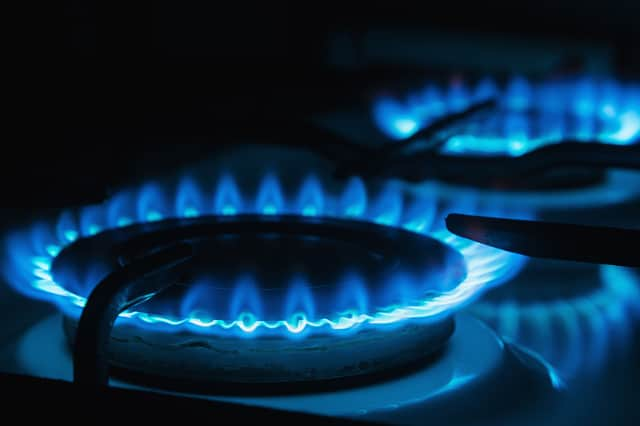Households that claim benefits to have automatic energy bill hikes frozen


Thousands of UK households who claim benefits will have automatic hikes to their energy bills temporarily frozen.
The Department for Work and Pensions (DWP) has announced it will not increase gas and electricity payments that are automatically deducted from benefits to energy suppliers at their current rates.
Advertisement
Hide AdAdvertisement
Hide AdAs part of the temporary measure, the DWP said it will not consider any automatic requests to increase payments from energy suppliers even if a bill has gone up.
Will families claiming benefits pay extra costs?
For the next 12 months, only claimants will be able to increase the payments and the DWP will refuse supplier requests to hike bills.
It means that even if energy bills increase, benefit payments will remain the same and at the same rate. Freezing automatic increases will also provide time for struggling families to speak to their energy provider and discuss alternative payment options.
Despite the freeze to automatic deductions rising, energy bills will still go up and claimants will have to find a way to pay the increase.
Advertisement
Hide AdAdvertisement
Hide AdPayments should be made by paying any extra costs directly to the energy company, or by asking the DWP to increase your payment from your benefit money.
Around 100,000 people who claim Universal Credit, Jobseeker’s Allowance, Employment Support Allowance, Income Support and Pension Credit claimants have their energy bills deducted from their benefits. This is called ‘third party deductions’ and sometimes Fuel Direct.
David Rutley, Minister for Welfare Delivery, said: “This is another practical change which adds to support through our £1bn Household Support Fund, cut to Fuel Duty and the Energy Bills Rebate which all help people meet their daily costs.
“Budgeting requirements differ from household to household and this change allows people to maximise their benefit payment to suit their needs while also capitalising on other support available.”
Advertisement
Hide AdAdvertisement
Hide AdThe DWP will also not process new energy supplier requests for ongoing payments if an arrangement is not already in place, but it will consider requests from energy companies to make deductions for arrears which are lower, fixed amounts that prevent alternative enforcement action from being sought.
What help can you get for energy bill costs?
To help manage the rising costs of energy bills, you can speak to your energy provider to see what hardship funds they can offer, or if there is any other support.
All the big energy firms have charitable hardship funds and grants that you may be eligible for if you are struggling.
The British Gas Energy Trust, which is a pot of £6 million, can be accessed by anyone, not just British Gas customers, providing you meet the eligibility criteria. It will write off energy debts of up to £750, with 2,450 grants awarded so far.
Advertisement
Hide AdAdvertisement
Hide AdDebt charity Turn2Us also has a free grants search tool to see what help is available where you live.
If you are struggling to work out what grants or help you could be entitled to, you can speak to one of the specialist energy charities, such as Home Energy Scotland, National Energy Action (NEA) or the NI Energy Advice. The charities will also be able to help if you think you have been unfairly treated and want to submit a complaint.
The Warm Home Discount scheme offers £140 one-off payments for those who get the Guarantee element of Pension Credit or are on a low income, or the Winter Fuel Payment scheme allows those getting the state pension to get between £100 and £300.
The Cold Weather Payment scheme can also help low-income households get £25 a week to help with energy bills during the winter.